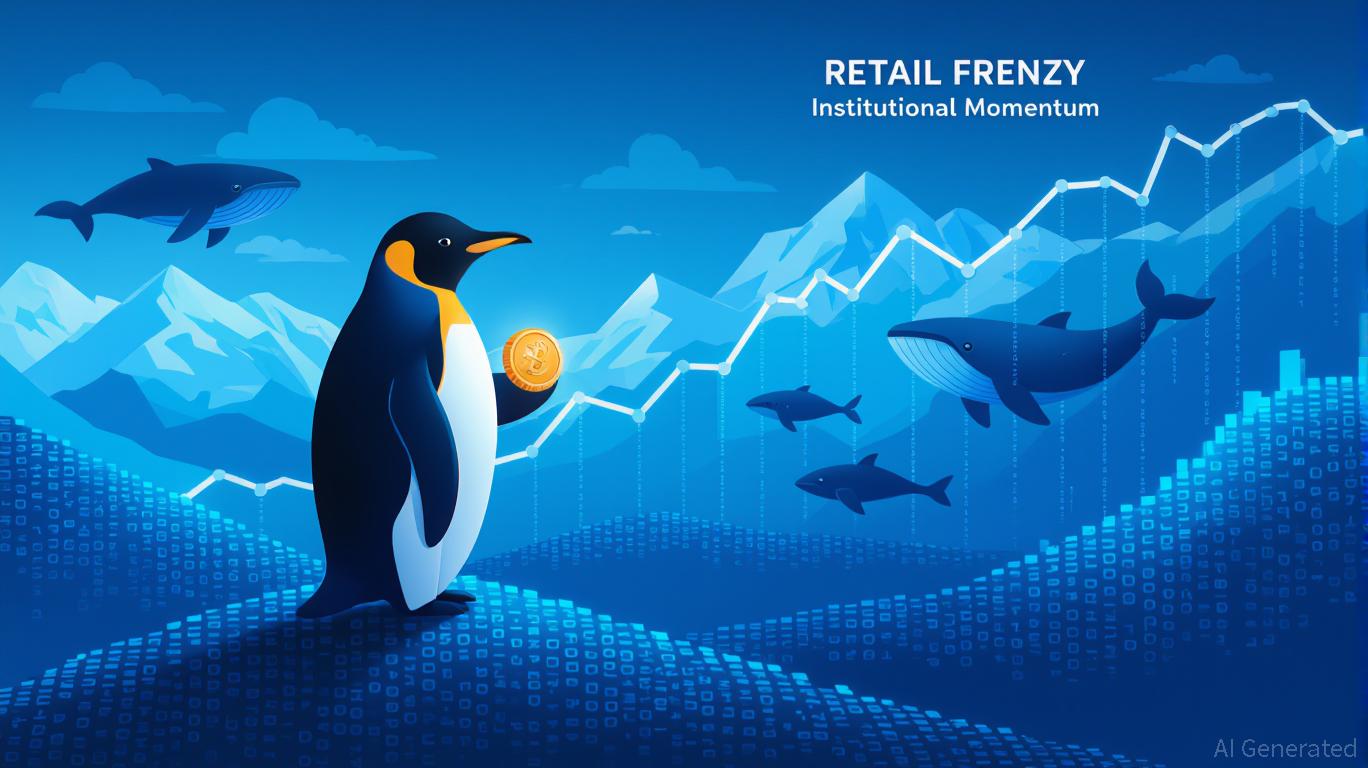The Growth of AI in Education: How Machine Intelligence is Transforming Educational Programs and Creating New Investment Prospects
- Universities like Farmingdale integrate AI into curricula, emphasizing ethics and workforce readiness. - The global AI education market, projected to reach $92.5B by 2033, drives demand for scalable, ethical solutions. - Investors target K-12, corporate training, and ESG-aligned AI tools, navigating rapid tech shifts and regulatory challenges.
Institutional Adaptation: From Curriculum to Capstone
Farmingdale State College stands as a model for how institutions are responding to the AI revolution. Its Bachelor of Science in Artificial Intelligence Management program, introduced in 2025,

AI is also being integrated into established academic fields. For example,
Workforce Readiness and Market Demand
The need for these educational changes is highlighted by current employment trends. Employers in industries from healthcare to finance are seeking talent capable of leveraging AI for analytics, automation, and informed decision-making.
Additionally,
Strategic Investment Opportunities
The rapid expansion of AI in education has drawn considerable attention from venture capitalists. In 2025,
Major areas for investment include:
1. K-12 and Corporate Training: These two segments lead the AI education industry,
2. Scalable Solutions: Investors are drawn to startups with models that can grow rapidly,
3. Ethical AI and ESG Alignment:
4. AI Agents and Deep Tech:
Risks and Considerations
Despite the vast opportunities, investors must be mindful of several challenges. The fast pace of technological change requires flexibility, and the crowded AI education market demands clear differentiation. Startups must also tackle issues like data security and ensure their products comply with changing regulations. For educational institutions,
Conclusion
The integration of AI into education marks a pivotal intersection of academic progress and market potential. Institutions like Farmingdale are reshaping their offerings to prepare students for an AI-focused world, while the market for AI educational tools presents strong returns for investors. Success in this arena depends on supporting scalable, ethical, and industry-targeted solutions. As AI continues to transform education, those institutions and investors that anticipate and adapt will drive the next era of innovation.
Disclaimer: The content of this article solely reflects the author's opinion and does not represent the platform in any capacity. This article is not intended to serve as a reference for making investment decisions.
You may also like
The Psychological Factors Influencing Retail Investors’ Actions in Cryptocurrency Markets
- Crypto markets are shaped by behavioral finance, where retail investors drive volatility through FOMO, herd behavior, and overconfidence. - The PENGU token exemplifies this dynamic, surging 480% in July 2025 but plummeting 28.5% by October due to emotional trading cycles. - Social media amplifies emotional contagion, with traders checking prices 14.5 times daily, while financial literacy mitigates bias susceptibility. - Personality traits like neuroticism increase cognitive biases, and speculative narrat

Bitcoin News Today: Bitcoin's Unstable Holiday Periods Hide Average Gains of 6%
- Bitcoin's Thanksgiving-to-Christmas performance shows equal odds of rising or falling, with a 6% average seasonal return despite volatility. - Historical extremes include a 50% 2020 rally and 2022's 3.62% drop post-FTX collapse, amid a $2.49-to-$91,600 long-term surge since 2011. - 2025's $91,600 price reflects ongoing recovery from 2024's $95,531 peak, with institutional crypto adoption and macroeconomic factors shaping future trajectories. - Analysts advise dollar-cost averaging for retail investors, w

Australia Strikes a Balance Between Fostering Crypto Innovation and Safeguarding Investors with Updated Regulations
- Australia introduces 2025 Digital Assets Framework Bill to regulate crypto platforms under ASIC, creating "digital asset platform" and "tokenized custody platform" licenses. - The framework mandates custody standards, transparency requirements, and lighter regulations for small operators (<$5k per customer) to balance innovation with investor protection. - Global alignment with UAE and EU crypto regulations is emphasized, while addressing risks from past failures like FTX through stricter enforcement and

PENGU Token's Latest Price Fluctuations and Blockchain Indicators: An Analytical Perspective on Technical Factors and Institutional Activity
- PENGU token's recent volatility and on-chain activity spark debate over institutional involvement in the crypto market. - Technical indicators show conflicting signals: overbought RSI vs. positive MACD/OBV momentum since November 2025. - Whale accumulation and Solana integration suggest strategic buying, while team wallet outflows highlight market uncertainty. - Social media sentiment drives short-term price swings, but structural risks like tokenomics and regulatory ambiguity persist. - Institutional ad
